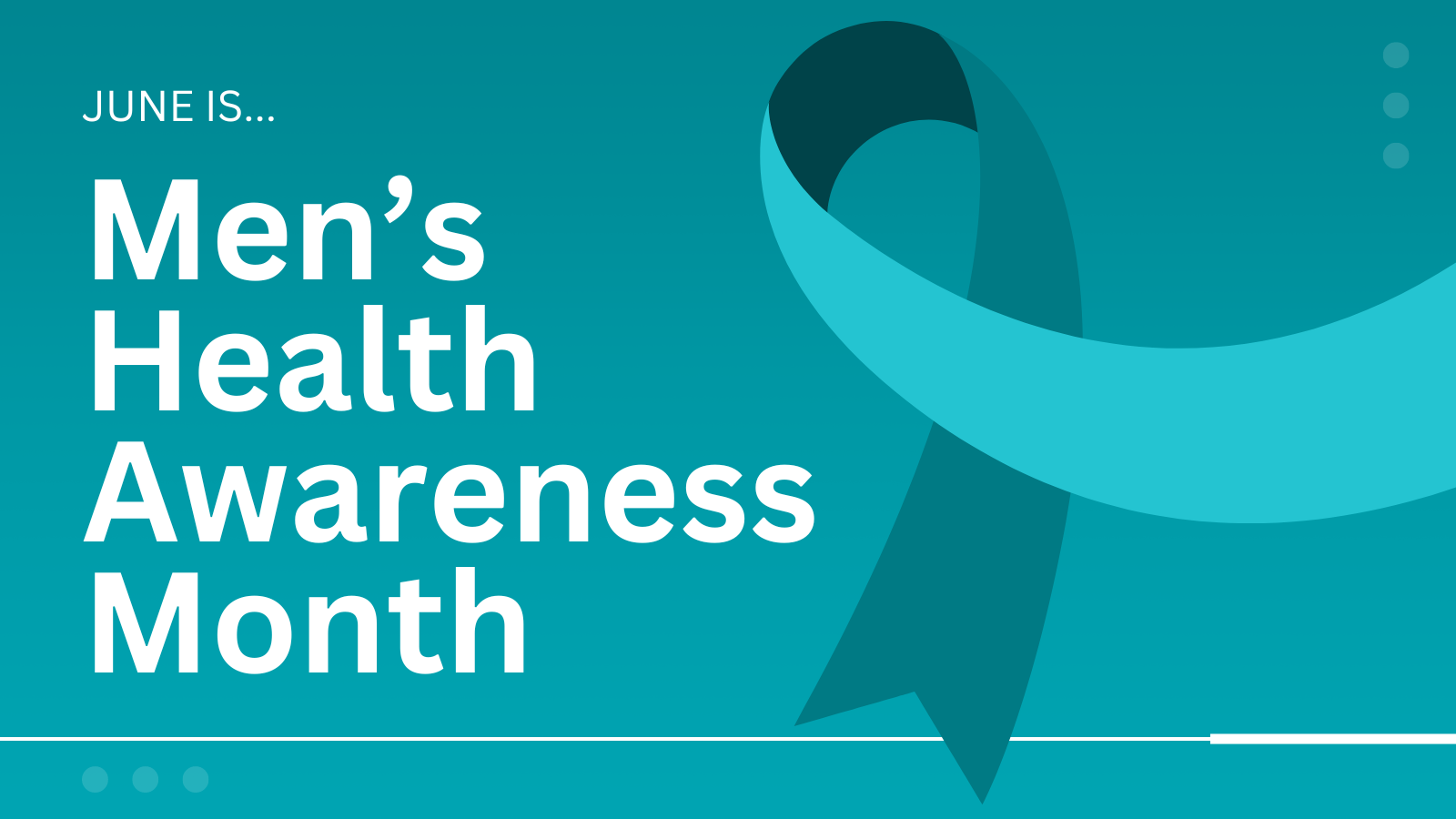Men’s Health Month Encourages Proactive Wellness
Men's Health Month in June is a crucial time to reflect on the significance of men taking their health seriously. Men's Health Month is dedicated to...

A study from the CDC found that, on average, men in the U.S. die 5 years earlier than women and are at higher risk of dying from heart disease, cancer, or unintentional injuries as they age. Making men’s health a priority helps spread awareness of the preventable risk factors, as many common health conditions can be avoided or minimized.
Here are 4 tips for healthy aging:
If you have ever read an article about living a healthy lifestyle, you have been told that your body needs movement. It is not a trend or a means to sell gym memberships. It is because it works! By simply going on a walk each day you can improve your health. Starting an exercise program when you are older is still useful and can combat the effects of aging.
You are not expected to carve out hours in the gym each day to see results. Find an activity you enjoy, such as walking, swimming, dancing, biking, or even golf (if you are walking the course) and do 30 minutes a day. According to Harvard Health, in just 30 minutes each day, you can reduce your risk of heart disease, manage blood sugar, improve your mood, improve your sleep, and even reduce your risk of cancer.
Stress is a feeling everyone experiences in their lifetime. Although it is subjective (because it’s often self-reported), stress is a natural response that our bodies are very capable of handling in small doses. The issue occurs when stress becomes chronic.
As the body becomes stressed, the muscles tense up to brace itself against incoming pain. Prolonged tension not only leads to headaches, lower back pain and increased likelihood for re-injury, but it is linked to higher risk of heart disease, a weakened immune system, and an increased risk of Alzheimer’s later in life.
There are plenty of ways to help reduce stress, such as:
Confiding in your support system of family, friends, or therapist about the stress you are feeling
Relaxing your tensed muscles with a hot bath, massage, or deep stretch
Meditation
Taking time off work (if possible) to go on vacation or spend time with your loved ones
Managing your time by planning your week ahead
Learning how to say “no”. If you are already overwhelmed with what you have on your plate, then do not overcommit yourself to more stress inducing tasks
Prioritizing your sleep
As men age, they typically they become less active, which causes their metabolism to slow down. The weight gain and muscle loss many men experience as they age occurs from eating a high number of calories but not staying active enough to burn off those calories as energy. Depending on your activity level, you may need to adjust your intake to maintain a healthy weight.
Even though fewer calories are required, the same or higher amount of nutrients are needed. Some recommended nutrients as you age are:
Calcium and Vitamin D promote bone health. These nutrients can be found in a variety of foods. Calcium is commonly found in dairy products or fortified foods and beverages. Vitamin D is commonly found in fatty fish, eggs, and red meat. Both are available in forms of supplements and within multivitamins if you lack these foods in your diet.
Consuming dietary fiber keeps good digestive health. Fiber is found in foods like whole grains, oatmeal, fruits, vegetables, beans, and lentils.
To reduce the risk of high blood pressure, it is recommended that men increase their potassium and reduce their sodium intake. Foods such as bananas, sweet potatoes, and spinach contain potassium.
According to the 2015-2020 Dietary Guidelines for Americans, calcium, vitamin D, dietary fiber, and potassium are “nutrients of public health concern” because low intake could lead to health issues.
Dietary needs differ from person to person. Consult your healthcare provider to determine which nutrients you lack in your diet.
Even if you feel like you are at your healthiest, you should still visit your healthcare provider regularly for checkups. This is a fantastic way to catch developing conditions early when they are more easily treatable.
Men between the ages of 40 to 65 should be getting regularly screened for:
Blood Pressure
Cholesterol
Colorectal Cancer
Prostate Cancer
Diabetes
Other diseases based on family history
Consult with your health care provider to have a tailored approach to you and your individual needs based on your age, health history, and family health history.
References:
Products - Data Briefs - Number 355 - January 2020 (cdc.gov)
Exercise and aging: Can you walk away from Father Time - Harvard Health
Health screenings for men ages 40 to 64: MedlinePlus Medical Encyclopedia

Men's Health Month in June is a crucial time to reflect on the significance of men taking their health seriously. Men's Health Month is dedicated to...

Getting Back on Track for School

Surveys show a major increase in the number of U.S. adults who report symptoms of stress, anxiety and depression during the pandemic, compared with...